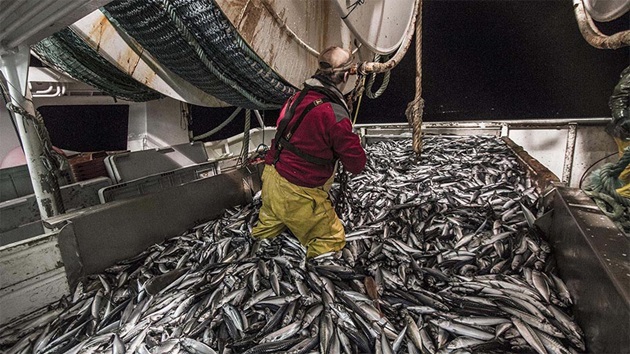
Governments are sleepwalking into a potential repeat of the 1960s herring crash by failing to prevent overfishing of Atlanto-Scandian herring (AS herring), one of Europe’s most iconic and economically important fish stocks, new figures reveal.
The International Council for the Exploration of the Sea (ICES), the science organisation responsible for advising governments on sustainable catch limits, has advised that a steep cut of 44% in AS herring catches – equivalent to 302,932 metric tonnes - is required.
But ICES predicts that even if that figure is adhered to, herring stock levels could still fall even lower by 2025, breaching a critical level and risking the long-term sustainability of the stock.
The release of the new data shows the AS herring stock has dropped from 7 million metric tonnes in 2008 to 3,7 million metric tonnes, with catches in 2022 exceeding ICES advice by 36%, according to an analysis by the Marine Stewardship Council (MSC).
Erin Priddle, Regional Director for the Marine Stewardship Council in North Europe said: “The declining health of AS herring and the latest alarming forecast should send a sharp reminder to governments that stocks are at risk of collapse when they are overexploited year on year.”
At the heart of these worrying developments lies the inability of fishing nations to agree on quota sharing in line with scientific advice. Instead, AS herring, as well as Atlantic mackerel and blue whiting, are being fished according to quotas that are set unilaterally by individual nations, resulting in ongoing overexploitation of these resources.
The MSC is calling on governments from the fishing nations of the North East Atlantic to reach a quota sharing agreement in line with scientific advice. The upcoming Coastal States meetings in October 2023, will be a critical opportunity to move beyond the current deadlock and agree a quota share allocation that aligns with ICES advice, helping safeguard the health of these stocks for future generations.
Priddle continued: “The North-East Atlantic pelagic stocks represent one of the largest fish populations in Europe and are fished by some of the richest nations in the world. It would be an indictment of all governments involved if they continue to exceed the scientific advice by setting unilateral TACs [total allowable catch]. Setting quotas within safe biological limits is the bedrock of good fisheries management.”
The MSC’s analysis of the data reveals that in the last six years alone, total combined catches of Atlanto-Scandian herring, mackerel and blue whiting have exceeded the catch amount advised by scientists by 31%. This equates to almost 4.5 million tonnes of fish which, if the scientific advice had been followed, should have been left in the sea.

